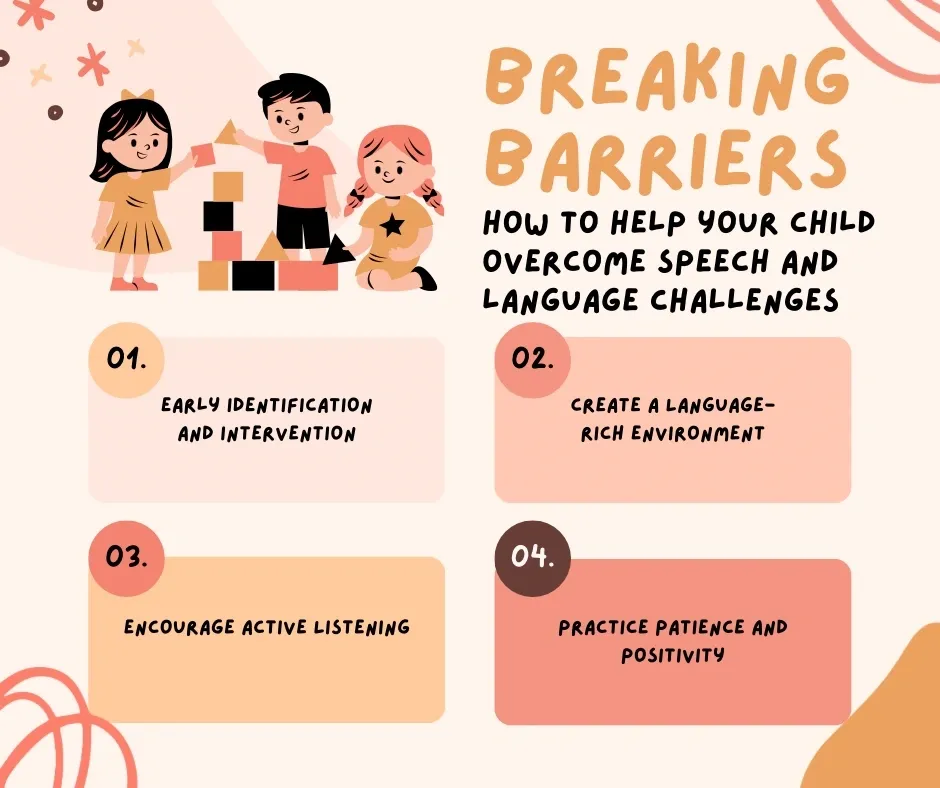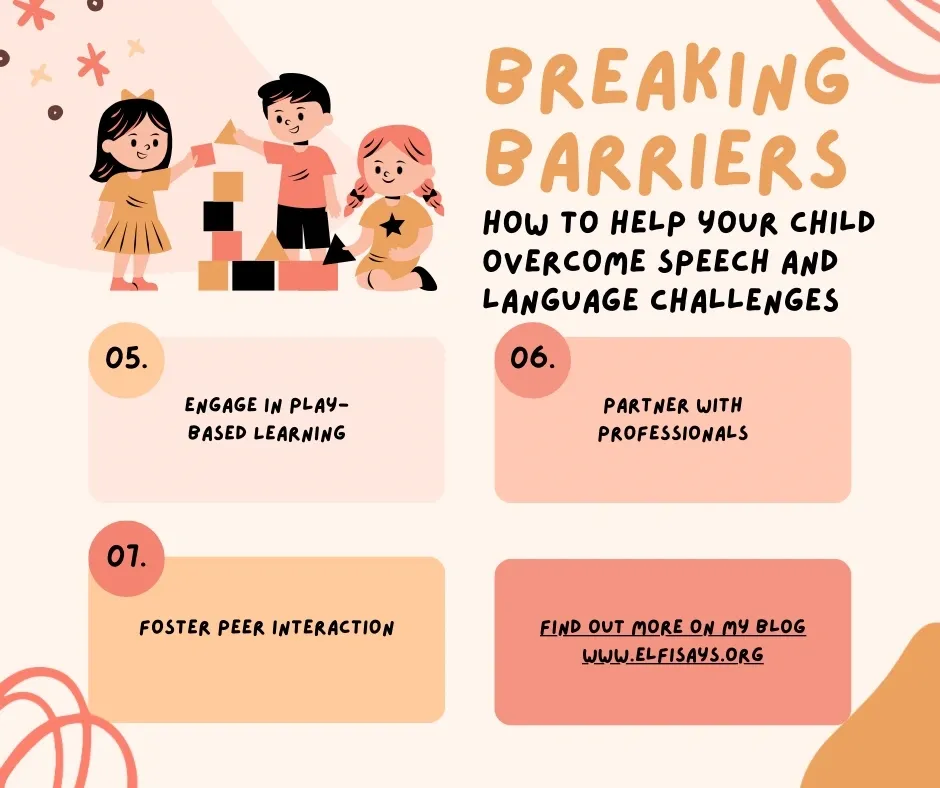Introduction
As parents, we understand that every child is unique, and so are their developmental journeys. For some children, the path to effective communication may present challenges, and as caretakers, it is our responsibility to provide unwavering support and guidance. In this blog, we’ll explore strategies and tips to help your child overcome speech language challenges and embark on a fulfilling journey of self-expression and communication.
1. Early Identification and Intervention:
The key to addressing speech language difficulties lies in early identification and intervention. As parents, it is crucial to stay attuned to your child’s development and be aware of any red flags. If you notice delays in speech milestones, such as limited vocabulary or difficulty pronouncing certain sounds, consider seeking a professional evaluation from a speech-language therapist (SLT). Timely intervention can significantly improve your child’s progress and pave the way for better communication skills.
2. Create a Language-Rich Environment:
A language-rich environment is vital for fostering your child’s language development. Engage in conversations with your child, read books together, and expose them to a variety of age-appropriate language materials. This immersion in language will not only encourage vocabulary expansion but also build a strong foundation for improved communication.
3. Encourage Active Listening:
Communication is a two-way street, and active listening plays a pivotal role in effective communication. Teach your child the importance of listening and responding attentively during conversations. Show genuine interest in their thoughts and feelings, creating a supportive atmosphere where they feel encouraged to express themselves.
4. Practice Patience and Positivity:
Patience is a virtue when helping your child overcome speech language challenges. Celebrate every small milestone and acknowledge their efforts rather than focusing solely on the end goal. Encouragement and positivity will boost their confidence and motivate them to keep trying.

5. Engage in Play-Based Learning:
Play is a powerful tool for learning, and it can be especially beneficial for children with speech language difficulties. Engage your child in interactive and play-based activities that incorporate speech exercises. Simple games like “Simon Says,” storytelling with puppets, or building blocks while describing the process can make learning enjoyable and effective.
6. Partner with Professionals:
Collaborating with speech-language therapists and educators is essential in your child’s journey to success. Work together with experts to create a tailored plan that addresses your child’s specific needs and builds upon their strengths. Regular sessions with professionals combined with consistent practice at home will yield positive results.
7. Foster Peer Interaction:
Social interaction is an integral part of communication development. Encourage your child to engage in playdates and group activities with peers. This exposure to different communication styles and social dynamics will help them refine their communication skills and build meaningful connections with others.
Conclusion:
Helping your child overcome speech language challenges requires dedication, understanding, and a commitment to their growth. As parents, you play a pivotal role in providing the necessary support and encouragement on their journey to effective communication. Embrace the process, celebrate their progress, and remember that every step forward is a step closer to breaking barriers and empowering your child’s voice. Together, let’s create an environment where communication flourishes, and your child can confidently express themselves, enriching their lives and those around them.

